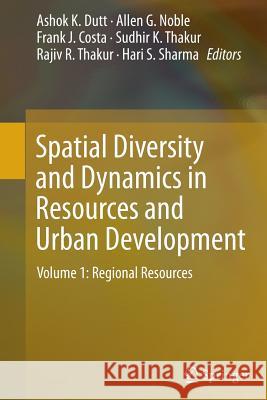Spatial Diversity and Dynamics in Resources and Urban Development: Volume 1: Regional Resources » książka
topmenu
Spatial Diversity and Dynamics in Resources and Urban Development: Volume 1: Regional Resources
ISBN-13: 9789401779807 / Angielski / Miękka / 2016 / 562 str.
Kategorie BISAC:
Wydawca:
Springer
Język:
Angielski
ISBN-13:
9789401779807
Rok wydania:
2016
Wydanie:
Softcover Repri
Ilość stron:
562
Waga:
0.80 kg
Wymiary:
23.39 x 15.6 x 3.0
Oprawa:
Miękka
Wolumenów:
01
Dodatkowe informacje:
Wydanie ilustrowane











